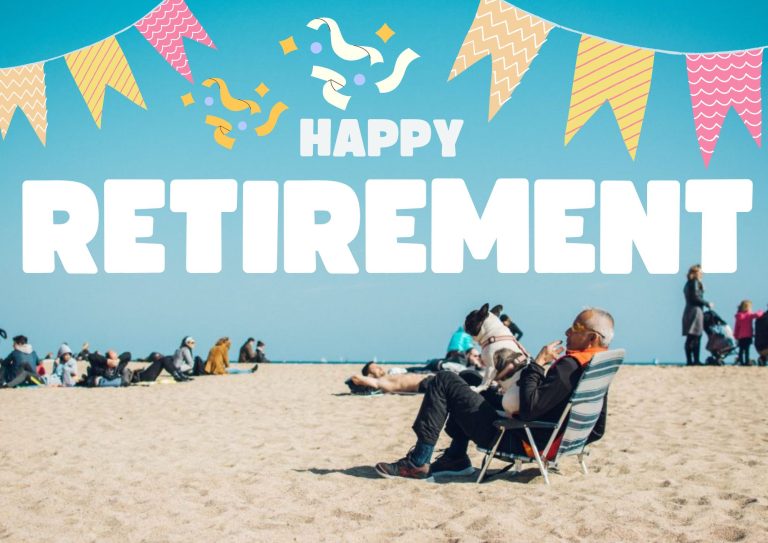Retirement is the point at which you leave your job and stop working in that area permanently, usually because of age. It is a phase in your life when you have to leave your long time career or occupation in favor of engaging in recreational activities. It is starting a new chapter in your life.
When you decide to leave your working place and do not work in that type of job anymore, then you are. Someone who has retired is known as a retiree.
Why do people retire?
- A lot of people retire after they have reached a certain age. Currently, in Kenya, the retirement age is 60 years.
- Some stop working because they are not able to perform their duties because of health issues.
- Others retire because of changes in their industries, financial issues or quit work willingly.
- Some continue working for as long as they can while others are forced to retire earlier than desired.
Many countries around the world have developed a structure for offering pensions or other benefits for retirees to help sustain their income. The beneficiaries must attain a certain age which allows them to be entitled to retirement benefits.
Planning for Retirement
This refers to developing a clear financial strategy that will enable an you have adequate amount of money on retirement to enable you live the kind of life you desire. Life after retirement is meant to make you happy, satisfied, and even fulfilled as you continue enjoying life to the fullest. To secure this type of lifestyle, you’ll have to work extra hard. You’ll plan effectively on the right steps to take.
Preparing for retirement
1. Money needed for retirement
Understand how much money you will need for retirement. The money you save or invest must provide you approximately 74 percent of the income you used to earn before retirement to live comfortably after you retire.
2. Pension or Retirement benefits
Learn more about the kind of pension or benefits you expect to get after you retire. On average, when you retire, your benefits will typically be about 43% of the income you were making before retirement. Although, dependent in your earnings and the age at which you will begin to collect your benefits, the amount may differ.
3. Employer pension plan
Make sure you understand the pension plan offered by your employer and understand how it works. Determine the value of your benefit and be aware of what will occur with your pension benefit.
4. Start a retirement program
Ask your employer to start a retirement program if your employer hasn’t provide one. They can set up a simple plan that benefits both you and them. There are many different types of retirement savings and investment plans that the average worker can join.
5. Retirement plan contribution
Understand your retirement plan. Find out how much more you have to contribute to get the full employer contribution. Also determine for how long you must participate in the plan to access the funds.
If your employer offers retirement savings plan, get enrolled and contribute the maximum that you can. In this way, you can reduce you taxable income and get tax-deferred investments and compounded interest. Thus, you’ll save and also earn a lot of income in the long run.
6. Savings
Start saving, keep on saving, and remain focused on your goals. If you have not started saving, then the time has come to do so. Start with a little amount and then try to save more and more money each month. The earlier you start saving, the more time your money will have to compound (grow).
Do not withdraw your retirement savings at this time. If you do, you may lose the money you invested and the interest you earned. You might also lose the possible tax benefits or incur additional fees for early withdrawal.
If you change jobs, it is wise to leave your money in your current plan or roll it over into a new employer’s plan.
7. Investing
How you invest your money is just as important as how much you save. Learn more about the types of investments offered in your plan and don’t hesitate to question anything.
You can find out how your money is being invested in your savings or pension plan. Factors such as inflation and the kind of investments which you make will determine the amount of income you receive when you retire.
Diversify your investments to minimize risk and maximize on the potential returns. You may adjust your investment plans based on your age, goals, and financial conditions.
8. Seek advice
Seek counsel from your employer, bank, retirement solution provider or your financial planner to get a better understanding of a given matter or issue. Be clear on the answers that you get.

Retirement Way of Life
Lifestyle decisions when you retire are varied and stem from individual preferences as well as their situations. Retirement lifestyles that are fulfilling are examples of how to spend your retirement years.
Retirement offers you the possibility to lead a type of existence that is in harmony with your interests, goals, financial state, or physical well-being. There are many options available, like the one listed below.
⦁ Family-focused: Some retirees consider family as very important. They prioritize bonding with grandchildren, organizing family events or other activities.
⦁ Relaxation and leisure: You become free to do simple things including gardening or reading, taking a stroll, hence experience a stress-free life.
⦁ Gardening Guru: A few of the retirees invest their valuable time and energy into tending to beautiful gardens and landscaping as a form of retirement.
⦁ Part-time employment: Some retirees prefer to look for a part-time job or something like freelancing. This helps them to remain part of the workforce.
⦁ Volunteering and philanthropy: Doing volunteer work for say local organizations, charitable organizations or even international humanitarian causes is something that retirees can find meaningful to do.
⦁ Outdoor Adventurer: Some retirees participate in hiking, biking, playing golf, fishing, and exploring the national parks as well as other natural attractions.
⦁ Travel Enthusiast: You can travel all over the world, come across different cultures, visit famous places, and taste different types of food when you retire.
Conclusion
Retirement is a crucial change from the working life to a stage in life when you are relieved of employment related responsibilities. It is a time to go out and seek more opportunities and experiences that are in line with your desire. if you successfully identify the essential features of your retirement, choose the maximum of possible benefits, and make satisfactory investments, you can create the desired financial groundwork to a solid retirement.


